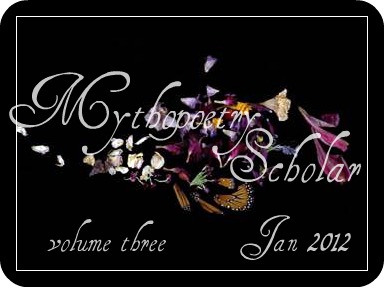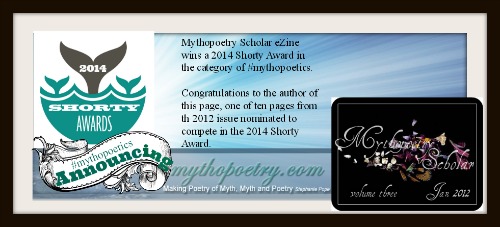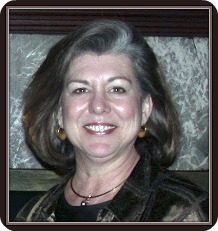
Mythopoetry Scholar
Annual Reflections In Depth Perspectives

It's About Time
A Revolutionary in His Own Words
A Tribute To James Hillman 1926 - 2011
-Elise Collins Shields
Maior autem animae pars extra corpus est
“The greater part of the soul is outside the body”
-- Sendivogius
On October 27, 2011, The Occupy Movement was in full swing, having uttered its initial birth scream on September 17. On October 27th in London, the Canon Chancellor of St. Paul’s Cathedral resigned, unwilling to support plans for the forcible removal of protestors from the area surrounding the cathedral grounds. The Reverand Dr. Giles Fraser stated he could not support the possibility of “violence in the name of the church.” Late that night, Occupy Oakland marched in honor of one of their own, an Iraq war veteran, who lay in critical condition with a fractured skull after a violent beating by police. On that day, hundreds of protestors occupied New York City’s Wall Street financial district, protesting unrestrained capitalism and greed. And by that date, Occupy sites had grown to nearly 2,300 in 2,000 cities worldwide, as people took revolutionary measures toward more just economies and sane societies. As if in concert, led by some transcendent maestro, incidents raged across the nation and around the world.
And early in the dawn of that day, October 27, 2011, Dr. James Hillman died. Leaving this temporal realm as his body passed Hillman, both mythic and human renegade, left a legacy that will long endure beyond his human presence -- a legacy we will continue to unfold for years to come. I long to have asked what he thought of the Occupy Movement that seemed to manifest in radical physical form so many of the very ideas he advocated repeatedly over many years through his writings, lectures, interviews and conversation. I never had the chance.
I received news of his death that morning while attending meetings in Boulder, Colorado. An overnight snow storm had blanketed the ground leaving the brilliant reds and golds of fall leaves buried in white pillows at the base of the historic Chautauqua park. Paths were bordered by majestic red flatiron spires that shot skyward into the heavens as if in conversation with the gods. Such was the natural cathedral in which I was held. After pausing long enough to grasp the news, my overwhelming sadness felt surprising. After all, we knew that his death was imminent. This was, indeed, an anticipated end. In those moments, I felt the reality of this loss as larger than one life -- his passing too huge to be held within the simple message that announced it. I needed space to breathe and embrace the knowing. I bundled up, left the meeting, and began to walk Chautauqua’s paths, seemingly for miles.
While sorting my feelings of personal loss, I moreover attempted to engage the enormity of the vast chasm that would be left in the fields of psychology, philosophy, literature, mythology -- as well as in the contemporary world of social change. Winding my way through the flatirons, I decided I must return to James Hillman’s own words for insight. The world indeed, had seemingly turned on its head in the preceding months, both personally and within the collective.
Upon returning to my Arizona desert, I began to search through Hillman’s writings -- his words and the images they evoked in my psyche, remembering his repeated admonition to “stick to the image” as he revisioned the entire field of psychology through his iconoclastic interweaving of individual psyche with world soul.
Reviewing my notes from various class lectures and conferences, I discovered my scratchings from one of the earliest Hillman lectures I attended. During his remarks, December 13, 1994, James was riffing on the Forest Gump movie and it’s glorification of innocence and stupidity, exclaiming with great passion, right hand flying into the air as he barked, “The New Yorker saw the viciousness of the film with its insidious thought that we don’t need to know anything . . . the more innocence you have the more violence you constellate. . . . We came to the U.S. wanting to be innocent and yet we are filled with the blood of what we killed in creating our paradise.”1 Thus began my introduction to James Hillman’s call to “revolutionize” not only our perception of the world, but our actions in the world. Radically, Hillman continued to suggest that the therapy room should be “a cell of revolution. Which means it should be aware of the political and social world that people are in. Not just a revolution of consciousness, but of the actual social situations [in which people are living].”2
In his heretical book with Michael Ventura, We’ve Had a Hundred Years of Psychotherapy and the World is Getting Worse, Hillman explained his use of the term revolution. “By revolution, I mean turning over . . . turning over the system that has made you go to analysis to begin with -- the system being government by minority and conspiracy, official secrets, national security, corporate power, et cetera.”3 Time and again, Hillman called on us to turn away from the theories, structures and systems that lull us into apathy, demanding that we “awaken” and discard the comfort of our innocence. Hillman required that we reconnect to soul -- within ourselves and through active engagement with the world.
In a 2007 interview with Dr. Fraser Pierson, Hillman, proclaimed that instead of the founder of Archetypal Psychology or anything else, he preferred to be called a “renegade psychologist” and “champion of psyche” (Greek = soul), and stated the urgency of his concern. “Look at the U.S.A. All the people who have taken psychology courses and look at the lack of psychology in our government, in our attitudes. We haven’t a clue. We go around the world as if there was no such thing as a psyche, no such thing as a soul. We bomb and exploit and take and kill as if this had no effect on the soul of our own people, let alone other people. . . I’m worried about the soul of our own country from the effects of what we do. That certainly is on my mind.”4
As I look back over the twenty years that James Hillman’s philosophy has informed my own work and, to be sure, my life journey, I note with some alarm that I as an individual and we collectively have indeed, been sleeping within our world culture. Innocently trusting the system we go about our business, working on ourselves in therapy, concentrating on “what happened wrong to us in our childhoods, to work it out somehow. Instead of thinking, ‘Shit! I’m being abused right now by a system that doesn’t care about me at all.’ . . . We have a culture where slaves vote for their masters.”5 While I have gone about ‘doing good,’ the soul of the world is burning, dangerously so. Lee Robbins’ in his 2006 tribute remarks, “Why Hillman Matters,” quoted James stating, “Soul is a sun that gives off a dark burning light. It kills: ‘bringing about the death of naive realism, materialism and literal understanding.’”6 And now, at the end of James Hillman’s life flame on this planet, an revolutionary Occupy movement has erupted and we are each finding our way in its wake. We can no longer remain innocent and unchanged.
James Hillman taught us that we must also consider the next generation. We must care about the world’s soul -- the suffering of its oceans, rivers, forests and cities. We must turn away from a capitalistic view of psychology to that of soul-making -- the deepest and most intimate human act and yet, if we remain true to our calling, also the most public act. Hillman’s legacy asks that we stay with the symptom, and with the pain that it brings. As he liked to put it, “not to Advil it away.”7
As I write this I remind myself that we must remain close to the images -- as well as the dreams and stories manifested in them. The images of the Occupy movement are sometimes hard to endure as violence erupts intermittently in the clash of struggle. They represent the fragile hold that the people of the world sustain against the power structures that have overtaken the populous. But we must stay with them. We must keep them in full view. We must not shelter our children, as the events we live are, indeed, the makers of their world as well. The next generation must remain keenly aware of what is at stake. Might this be some essence of the “awakening” that James Hillman so often demanded? I wonder.
Shortly before James Hillman’s death, I sent a message through a close colleague, along with a promise. I am told that James smiled, gave a thumbs-up and said, “Great!” I am holding that image alongside the scenes from the Occupy movement. I think James would be pleased.
notes
1 Personal lecture notes, 1994.
2 Interview with Stephen Capen, Esalen Institute, 10/25/1995.
3 New York: HarperOne, 1993, p. 38.
4 Hillman, James. The Soulless Society. Video interview with Dr. Fraser Pierson. The Archetypal Psychology and Psychotherapy Series, http://www.psychotherapy.net/video/hillman-archetypal-psychology. Individual version, 62min.
5 Ibid. Capen, 1995.
6 Hillman, James. The Dream and The Underworld. Massachusetts : Peter Smith, 1983, p. 21. See “Why Hillman Matters” by Lee Robbins, a plenary session in celebration of the 80th birthday of James Hillman, July 8, 2006.
7 Personal notes, July 12, 2007.

Nominated in the community generated category #mythopoetics, It's About Time:
A Revolutionary in His Own Words: A Tribute To James Hillman 1926 - 2011, a part of the top ten nominated pages from this issue, finishes competition on 2/18/14 with an overall standing in position ***37*** among more than 3,500 nominees. Congratulations to Elise Collins Shields on this fine achievement.
*** **** ****** *** **** ****  **** *** ****** *** **** ***
**** *** ****** *** **** ***

AUTHOR BIO
Elise Collins Shields, Ph.D.
Former Executive Director of OPUS Archives & Research Center, Inc., located on the campuses of Pacifica Graduate Institute, Elise was responsible for building and expanding the organization holding collections including Joseph Campbell, James HIllman, Marija Gimbutas, Marion Woodman and others.
Prior to her position with OPUS, she led leadership training for young Arab women at Zayed University in the Middle East with a hybrid seminar/on-line curriculum developed specific to the areas’ cultural norms. She served as consultant for the mentoring and cultural training for Afghanistan women entrepreneurs for Thunderbird School for Global Management’s “Artemis Program.”
Holding two M.A. degrees and a Ph.D. in cross-cultural mythology & depth psychology, Elise is currently completing a certification in Conflict Transformation Across Cultures, including mediation and peacebuilding with field work in Rwanda.
She serves on the international boards of the Joseph Campbell Foundation, Karuna Center for Peacebuilding, and Quantum Leaps international women’s economic initiative, in addition to serving as CEO of CommonWell Institute International, Inc., dedicated to supporting women entrepreneurs in Afghanistan and other conflict/post-conflict areas.
CommonWell Institute International, Inc
OPUS ARCHIVES
Joseph Campbell Foundation
Karuna Center for Peacebuilding
Quantum Leaps
Return To Table of Content

